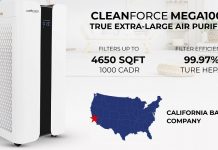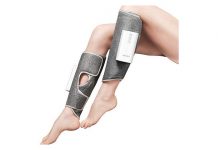Benzalkonium chloride is found in the family of quaternary ammonium compounds. This compound (benzalkonium chloride), was first revealed by Gerhard Domagk in 1935 and the first products containing the compound was registered in 1943. Since then, different products have been manufactured containing Benzalkonium Chloride, from clinical products to agricultural, industrial, and domestic products.
Benzalkonium chloride disinfectant is known to be used against viruses, fungi, and bacteria on surfaces. Still, because of its corrosive nature, the chemical, at a specific concentration, has adverse effects on the skin, eyes, and the aquatic environment. However, a safety formula has been created to eliminate these effects on domestic products.
Benzalkonium Chloride Disinfectants
Benzalkonium chloride is majorly applied for manufacturing of various disinfectants. We can also utilize the disinfectants in offices, homes, laboratories, processing plants, schools, etc. Its applications range from cleaning surfaces like floors, furniture, and door handles to the production of antiseptics like anti-itch ointment, antiseptic wipes, sanitizers, and creams. We can also use it for the disinfection and sterilization of surgical instruments, mucous membranes, skin, and injuries.
Benzalkonium Chloride kills bacteria very rapidly. Notwithstanding, its toxic level is quite low, and it has side effects like discomfort to the skin and in the mucous membranes abound, although at very low proportions.
One should take proper care when these products are handled such that it does not get in contact with the eyes, as it might be corrosive to the eyes. The long term effect of continuous exposure to Benzalkonium Chloride can result in a skin irritation known as dermatitis.
Disinfection of offices from Coronavirus
Talking about benzalkonium chloride disinfection as regards covid19, the virus, which causes uneasiness like difficulty in breathing, cough, and fever, can be controlled with disinfectants and sanitizers. It also creates severe health challenges like kidney failure, pneumonia, and even death. Whatever the case, it is an undesirable viral disease and hence must be avoided entirely. Experts mostly recommend sanitizers containing alcohol, but those containing benzalkonium chloride can be managed, too.
Coronavirus is transmitted through secretions or droplets produced from the nose and mouth of an infected person. It can be spread from one person to another, either through direct or indirect contact with an infected person. This makes it easy for the virus to get widespread in public places like schools, cinemas, places of worship, and workplaces. The impact of Coronavirus on firms and establishments is usually disastrous; it impedes productivity and results in losses. Hence, the need for benzalkonium chloride disinfection and alcohol sanitizers.
Conclusion
Employers can get better protection from the virus through the use of disinfectants that are made using Benzalkonium Chloride as the primary composition. This is very important because not only will the disinfectant kill all microorganisms it gets in contact with, but it will also impede their developments.
Employers can also ensure the safety of their employees and visitors from the virus by placing sanitizers and antiseptic wipes containing Benzalkonium Chloride at strategic places in the workplace. With this, visitors and workers can disinfect themselves intermittently.
























